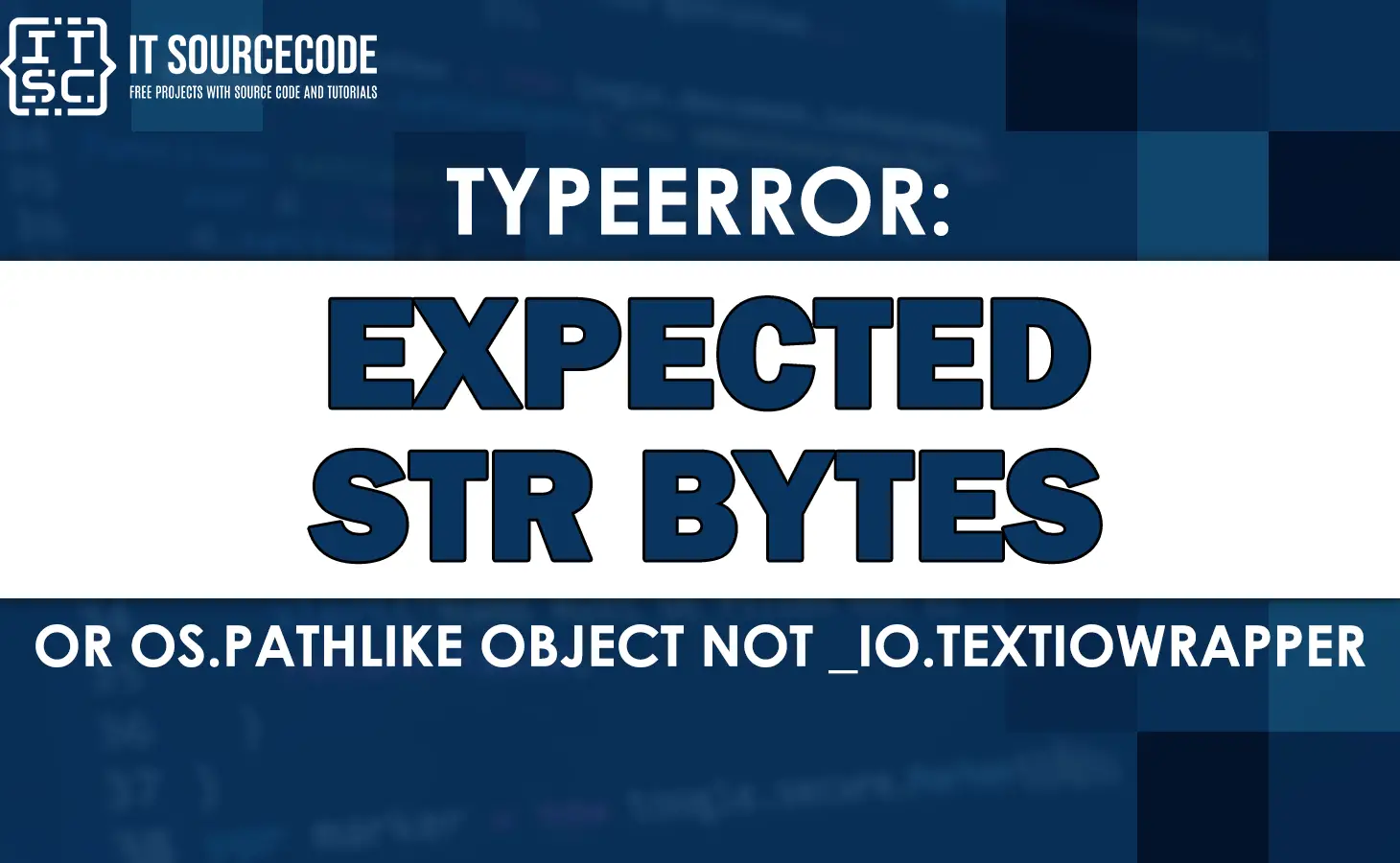Having Typeerror expected str bytes or os.pathlike object not io.textiowrapper error when you are in the midst of coding?
Well, this error can be frustrating but this can lead you to fix what is the cause of the problem.
Technically this error indicates that you’re trying to use a string method or an operation that expects a file path on a file object.
So, in this article, we will cover how this error occurs, determine its causes, and importantly, provide solutions to it.
What is Typeerror expected str bytes or os.pathlike object not _io.textiowrapper?
This error Typeerror expected str bytes or os.pathlike object not _io.textiowrapper implies that you’re trying to use a string method or an operation that expects a file path (which is a string) on a file object (which is not a string).
In other words, you’re passing an object of the wrong type to a function or method that expects a different type.
Why did this error occur?
A “TypeError: expected str, bytes or os.PathLike object, not _io.TextIOWrapper” error can occur for several reasons, including:
- Passing a file object (_io.TextIOWrapper) to a function that expects a file path (a string or os.PathLike object).
- Using the wrong mode when opening a file.
- Using the wrong encoding when reading or writing a file.
- Trying to perform file operations on a closed file object.
- Using an incorrect or misspelled file path.
- Attempting to perform file operations on a directory instead of a file.
Fix Typeerror expected str bytes or os.pathlike object not io.textiowrapper
Here are some solutions for the “TypeError: expected str, bytes or os.PathLike object, not _io.TextIOWrapper” error along with example code and explanations:
1: Pass the filename or path instead of the file object
For example, if you have a file object named file_obj, you can replace it with file_obj.name.
❌ Example error code
# Example code with the error
file_obj = open('data.txt', 'r')
data = some_function(file_obj)
✅ Solution
# Solution
file_path = 'data.txt'
with open(file_path, 'r') as file_obj:
data = some_function(file_path)
In this solution, we’re using the with statement to open the file and create a file object. We’re then passing the file_path string to the some_function() function instead of the file object.
This should fix the “TypeError: expected str, bytes or os.PathLike object, not io.TextIOWrapper” error.
2. Convert the file object to a string or bytes object using the read() method
For example, if you have a file object named file_obj, you can replace it with file_obj.read().
❌ Example error code
# Example code with the error
file_obj = open('data.txt', 'r')
data = some_function(file_obj)✅ Solution:
# Solution
file_obj = open('data.txt', 'r')
data = some_function(file_obj.read())
In this solution, we’re using the read() method to convert the file object to a string or bytes object that can be passed to the some_function() function.
3. Use the open() function to open the file and pass the resulting file object to the function or method
In this example, if you have a filename data.txt, you can open the file using open(‘data.txt’) and pass the resulting file object to the function or method.
❌ Example error code
file_path = 'data.txt' data = some_function(file_path)
✅ Solution:
# Solution
file_path = 'data.txt'
with open(file_path, 'r') as file_obj:
data = some_function(file_obj)
In this solution, we’re using the open() function to open the file and create a file object. We’re then passing the file_obj file object to the some_function() function.
4: Check if you’re using the correct function or method for the file object
Some functions or methods expect a file object, while others expect a string, bytes, or path-like object. Make sure you’re using the correct one.
❌ Example error code
# Example code with the error
file_obj = open('data.txt', 'r')
data = file_obj.write('Hello, ITsourcecode!')
✅ Solution:
# Solution
file_obj = open('data.txt', 'w')
data = file_obj.write('Hello, ITsourcecode!')
In this solution, we’re using the write() method on a file object that was opened in write mode instead of read mode.
Additional Resources
Anyway here are some other fixed typeerror wherein you can consider trying when facing these errors:
- Typeerror: cannot read property ‘testenvironmentoptions’ of undefined
- Typeerror: strings must be encoded before hashing
Conclusion
To conclude, Typeerror expected str bytes or os.pathlike object not _io.textiowrapper can be fixed with the given solutions above namely:
- Passing the filename or path instead of the file object
- Convert the file object to a string or bytes object using the read() method
- Use the open() function to open the file and pass the resulting file object to the function or method
- Check if you’re using the correct function or method for the file object
By considering these solutions, surely the error will be fixed.
That’s all for this article. I hope you have learned and fixed the error you are encountering.
Thank you! 😊

